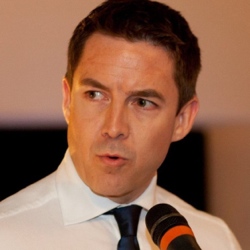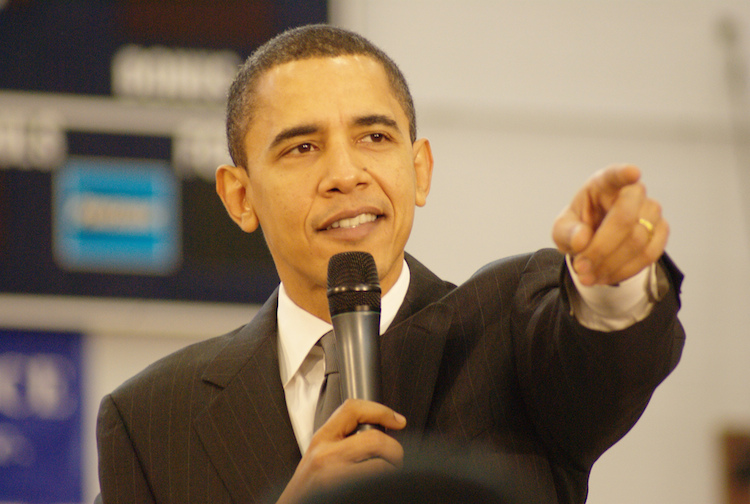
Turkey’s illiberal turn
August 13, 2014
France’s fascination with Israel and Palestine
August 14, 2014 
Matt Browne
In a recent piece analyzing relations between UK Labour and the US Democrats, the Economist seemed to imply that much of the progressive dialogue — both on policy front and campaign dimension — comprised of a one way flow of policy ideas and campaign practices from America to Britain. In reality, however, the nature of the transatlantic — and indeed the global —progressive dialogue is much deeper, richer and complex than this view implies.
As Neera Tanden and Stewart Wood noted in their piece for the Huffington Post, timed to coincide with Ed Miliband’s meeting with President Obama, the challenges now facing progressives across the developed economies and mature democracies are remarkably similar. The crash of 2008 not only changed the shape of our societies and our politics, it also fundamentally challenged the underlying assumptions about the nature of economic growth. Today, concerns with rising inequality are now an essential part of elite policy discussions, a pre-occupations of “Main Street” as well as mainstream politics. This new state of affairs is perhaps best illustrated by the global success of French economist Thomas Piketty’s work on inequality. Similarly, restoring trust in politics and a sense of connection between voters and parliamentarians is now a prerequisite for many political movements.
From a US perspective, the growing interest in inequality is a radical departure from recent political trends. As David Hackett Fischer notes in his comparative analysis of New Zealand and American history, Fairness and Freedom, until recently the dream of “living free” has been America’s Polaris; while “fairness” has been New Zealand’s Southern Cross. The contemporary progressive concern with inequality, however, is not simply a reflection of concern with fair outcomes, it is also based on a new understanding of how modern economies work: namely one that understands that sustainable economies grow from the middle-out rather than the top down.
This new economic vision implies that progressives need to work harder to support, strengthen and grow the middle classes. And, as global competition grows ever more intense, we need to ensure our agenda for economic growth and our competitive edge is based on the creation of high-wage and high-skilled jobs, not low-wages and low skills. Today, as David Sainsbury has articulated, nations are engaged in a race to the top, a race where government has an important strategic role to play in supporting policies to expand the middle class. In both the US and Europe, this has led to a growing interest in the lessons to be learned from Germany’s industrial policy and the strengths of the Nordic social model.

Barack Obama has recently met Ed Miliband to discuss progressive politics (photo: CC BY 2.0 Marc Nozel)
Last year, to help guide this dialogue, the Center for American Progress established the Inclusive Prosperity Commission. Chaired by former US Treasury Secretary, Larry Summers, and UK Shadow Chancellor, Ed Balls, the Commission has heard testimony from across North America, Europe and Australasia. It is set to issue a robust set of policy recommendations for the developed economies later this year, which we hope will provide a richer policy analysis to help underpin the public debates that will frame political contests on either side of the Atlantic in 2015 and 2016.
It’s not, however, simply in the area of policy that such a rich exchange takes place. When it comes to campaigning, communicating and organizing, a multi-dimensional dialogue of is also present. The traditional narrative about political campaigning, best captured by James Harding’s very entertaining Alpha Dogs: How Political Spin Became a Global Business, is of expensive US consultants exporting American campaign lessons to less sophisticated systems. Progressives have often lamented this process, echoing Joe Klein’s view, from Politics Lost, that pollster driven democracy has engendered timid power focused politicians and is thus complicit in the growing cynicism people have towards the political class today.
While this characterization of the political professionals of the past is perhaps unfair, what is clear is that the most recent innovations in campaigning and organizing have been focused on empowering ordinary voters. In 2008 and 2012, the core mantra of the Obama campaign, depicted in colorful murals on the walls of every campaign office was “Respect, Empower, Include”. Following these campaigns, many progressive strategists and organizers made a pilgrimage to the United States to learn the latest innovations in political organizing and communicating. The vast majority came to study online communications and social media, hoping they would find a new “silver bullet” that would help them modernize and re-energize their movements. As I argued in Wii, The People, what they discovered, however, was that new technology was married to a new philosophy of engagement — one that facilitated neighbor to neighbor and peer to peer communications — and built on the foundations of a concerted effort to establish more substantial and long-lasting “party”infrastructure.
The revival of progressive politics in the US began with Howard Dean’s leadership of the Democratic National Committee, which was characterized by a drive to marry innovation with the ability to institutionalize that learning. In contrast, European progressives now need to find ways for their strong – yet at times sclerotic – institutions to become more open, transparent and welcoming. Such change, of course, can be disruptive and uncomfortable for many, not least the old guard who often see intra-party politics as a zero-sum game. Yet resistance to change would now be a risky strategy. The rise of Podemos in Spain illustrates this risk, many young people no longer view organized politics as the best route to change, and while social media and new online organizing tools present an opportunity for progressive parties, they simultaneously lower the barriers of entry into the political process for those who feel excluded or ignored.
The challenge for all progressives, whether in Europe or the US, will be to generate new a new policy agenda and a new approach to doing politics that is able to attract, engage and retain new cohorts of voters while retaining their history, values and the support of their traditional voters. Those that succeed, will help build a movement for the future. Those that fail will become monuments to the past.
Have something to add to this story? Share it in the comments below.




